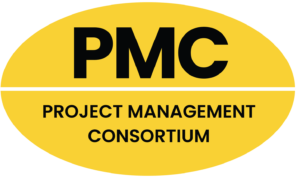Have you ever had a dream of owning a home or a commercial building? Do you wonder how much it would cost you or how you would go about it? Do you have an idea where or how to start? These are just some questions people ask themselves wherever they want to establish a building project. You can relate to this if you have ever renovated your home. Budgets were overstepped, construction timelines and expectations were not met. You needed people to be accountable and they didn’t.
There is a fine line between a successful project and a complete waste of time, energy, and resources. The difference between these two is a good contractor.
5 important factors to consider while choosing a construction company
- A contract with the right specifications
Construction is an expansive sector. So while choosing your contractor, choose the one who has worked on a similar project just like yours. If you’re planning to construct a hospital, you don’t choose that which constructs residential homes. Their work will be okay but won’t be to the level of expertise and specialized experience of a contractor who has handled hospital construction.
- Do your research on the construction company
Analyze their portfolio and assess the quality of their work so you know what you should expect for your project. Most construction companies have a website that shows their best work, go through them and assess their level of skills. You can also send the builder a message to send you more pictures to peruse through.
Also, check their website reviews for testimonials from their past clients. Pay attention to what they say about time management and customer service.
- Time management
Building is cost-intensive. You wouldn’t want a company that does not adhere to the stated time frame leading to a waste of resources. That’s why we mentioned earlier that you should go through the customer reviews. A company like Greenstone construction company values your time and money. They will ensure you get the best results for the time allocated so you won’t have to spend more.
- Ensure they are safety compliant
A contractor that ensures the safety and protection of its workers against workplace hazards will be trusted to act professionally on your construction site. An accident at your construction site may lead to closure for months, causing the project to take more time than it was initially allocated.
You can avoid this trouble by working with contractors who prioritize safety. It is also important to get insurance coverage before starting the project.
- Great customer service
During this period, you want to know how everything is going on. There is a lot of correspondence between you and the builder. should get a good contractor who values your input, takes time to address your concerns, and communicates effectively. This will make things run smoothly during your partnership.
Note that it’s not always advisable to bring contractors from other cities for your project while there are local ones who can do the job for you. Widen your selection criteria so you can find the best contractor for you.
Putting things together to complete a construction project is challenging hence you will need professional advice and knowledge on building plans and services. It may seem easy to achieve, getting quality and value requires so much effort but with the right assistance, skills, information, and materials you can get the best results in no time.
So, what are the essential steps you need to know before starting new construction?
- Understand building plans and designs
You may hire an architect or an interior designer to help you create building plans and designs or sometimes you may need expert skills. When choosing your designs you should meet the designers and architects in person. Architects’ services include construction permits and floor plans while designers work on less structural projects they advise on which color would fit best for your entire project.
Before you make any plans, lay out your budget. Explain to your architect how much money you’re willing to invest in the project. Discuss with your professional team what you want so they can come up with something that fits your preference and it is within your budget. You can also evaluate the different layouts available within your budget and pick which works best for you. After having your design in mind, you can make your plans. The plans include structural representations and a detailed floor layout of the project. The timeline will depend on the size and designs of the project.
- Acquire permits and approvals
After laying out your plans with your architect, you should submit them to land offices in your county for approval. Depending on your project you may need other approvals from other departments like waste haulers and public works.
Before approval, the area specialists visit your site and inspect the area you plan to develop. This allows them to conclude on the suitability of your building plan, condition, and the situation on the ground. An inspection also tries to identify problems that may arise in your zone if it is developed without implementing any safety measures. The process narrows to the suitability of the zone for the development, design features, and legal requirements.
- Contractors and acquiring the materials
As we mentioned earlier, the contractors come in after the plans are ready. Plans help in developing a budget for materials needed. After getting your contractor, with the help of your architect, you can start purchasing the required materials. Your contractor will also assist in acquiring materials, acquiring workers, and supervising the project to completion.
The materials needed should list from shower heads to tiles used in the building. You should consult the architect and the structural engineer before buying them to ensure you buy the right material needed.
Conclusion
When planning your construction project these three factors should be on top of your list. The primary focus should be getting detailed plans of the project with assistance from the planners, architects, and engineers. Approval and permits should follow the planning phase to pave way for the start of the project.






























